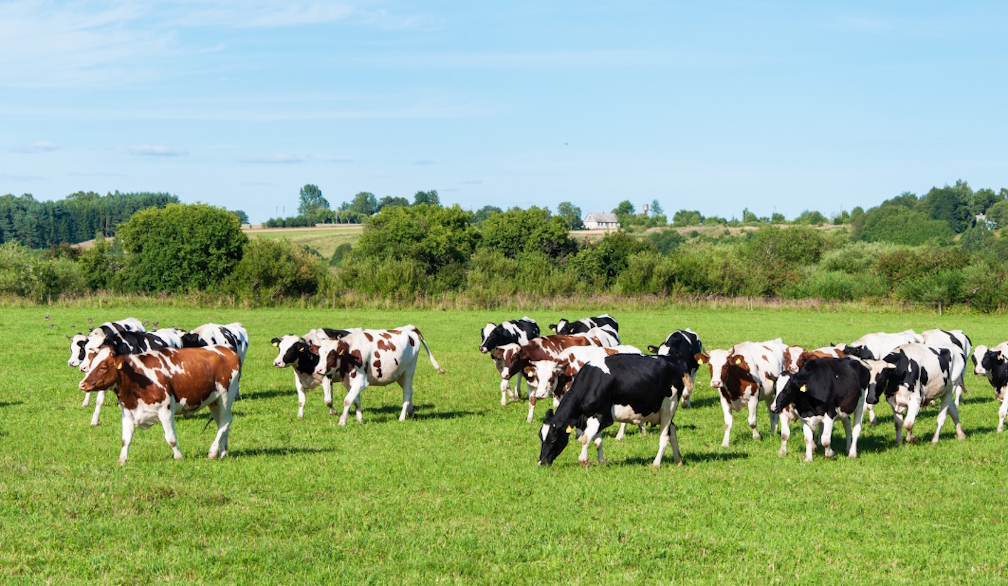Australia says US beef will soon be welcome here again. It’s unlikely we’ll buy much of it
- Written by Felicity Deane, Professor of Trade Law and Taxation, Queensland University of Technology

The Albanese government has today confirmed it will lift biosecurity restrictions[1] on beef imports from the United States. The timing of this decision has raised some eyebrows.
Back in April, US President Donald Trump had singled out[2] what he characterised as an Australian “ban” on US beef as he announced 10% baseline tariffs on imports from Australia.
Responding to today’s announcement, Nationals leader David Littleproud said[3] it appeared the restrictions have been “traded away to appease Donald Trump”.
But Trade Minister Don Farrell said[4] there was “nothing suspicious about this”. And some Australian industry groups have since expressed their confidence[5] in the decision.
So, has Australia’s beef industry been sold out for the benefit of a trade deal? Or is it just a poorly timed announcement at the end of a review into Australia’s restrictions?
Biosecurity concerns
Australia’s biosecurity rules, particularly around beef products, have long been a source of friction with the United States. These rules date back to the late 1990s[6] and were strengthened following a US mad cow disease scare in 2003[7].
In 2019, a ban was lifted on beef products[8] from cattle that had been born, raised and slaughtered in the US. However, a ban remained on any products from cattle originating in Mexico or Canada that had been slaughtered in the US.
This was a cause for some tension, because the traceability requirements in the US were not as stringent as in Australia. That meant it wasn’t always possible to determine the origins of US products. So the 2019 change effectively only applied to shelf-stable products – not fresh meat.
Last month, the Albanese government made assurances[9] Australia’s biosecurity rules wouldn’t be compromised in trade negotiations. But it also confirmed a review of the rules was underway.
The National Farmers’ Federation acknowledged the government’s decision in a statement[10] today:
The report released today is the result of a long-standing, science-based review by the Australian Government into the biosecurity risks posed by cattle raised in Canada and Mexico, but processed in and exported from the US.
Speaking on ABC Radio, Cattle Australia chief executive Will Evans acknowledged[11] “a lot of people” may feel “blindsided” by the government’s decision, but expressed his confidence in the government’s process.
Boom times for Australian beef
Australians are some of the highest per-capita consumers[12] of beef products in the world. But Australia is also the world’s second-largest beef exporter[13], trailing only Brazil.
In contrast, the US is the world’s second-largest importer of beef[14], behind only China.
That poses the question: how much do we actually need beef from the US? Is it even worth lifting this ban, if it will impact so few people?
The beef industry might be fair to question whether this is for the benefit of their industry, when it seems the existing 10% baseline tariffs have had no impact on the volumes of beef being exported from Australia. Quite the opposite.
In June, Australia’s beef exports broke an all-time monthly record[16], and the US continued to be our largest export market.
In addition, it is important to recognise the US tariffs on beef would theoretically be absorbed by the consumer, rather than the exporter.
The trade war rages on
Theory suggests that international trade is a good thing[17] (though not everyone is a “winner”). Where there is trade between nations, competitive pricing is encouraged and consumers may enjoy more product variety.
Most restrictions on trade are viewed unfavourably by economists, but there are some notable exceptions. The health and safety of food products and assurance of biosecurity standards are such concerns.
Overnight, comments from the Trump administration suggest the 10% tariffs on imports from Australia could be raised, with a new baseline tariff rate of 15%[18].
To apply these to Australian beef is in direct conflict with the Australia and United States Free Trade Agreement (AUSFTA)[19]. This agreement progressively removed tariffs on Australian beef, with all tariffs eliminated by 2023.
Consequently, any new US tariff would violate these terms, threatening a trade relationship that has seen beef exports to the US flourish.
Is our reputation on the line?
It is important to note that the biosecurity rules in Australia and the traceability requirements for our producers are a point of national pride.
Central to Australia’s biosecurity framework is the Biosecurity Act 2015 and the National Livestock Identification System, which ensures traceability, food safety, disease control and animal welfare.
This imposes strict requirements on Australian beef producers – and as a result, imposes costs. It also means Australian beef is considered a premium product in much of the world.
Australians should hope the evidence from the government’s review fully supports this action.
Given the unpredictability of the Trump administration, it remains to be seen whether lifting these restrictions will win Australia any concessions on trade anyway.
References
- ^ lift biosecurity restrictions (www.abc.net.au)
- ^ singled out (www.abc.net.au)
- ^ said (www.abc.net.au)
- ^ said (www.sbs.com.au)
- ^ expressed their confidence (www.sbs.com.au)
- ^ late 1990s (www.farmbiosecurity.com.au)
- ^ mad cow disease scare in 2003 (www.cdc.gov)
- ^ ban was lifted on beef products (www.theage.com.au)
- ^ made assurances (www.abc.net.au)
- ^ statement (nff.org.au)
- ^ acknowledged (www.abc.net.au)
- ^ highest per-capita consumers (www.mla.com.au)
- ^ second-largest beef exporter (www.mla.com.au)
- ^ second-largest importer of beef (www.mla.com.au)
- ^ James Ross/AAP (photos.aap.com.au)
- ^ broke an all-time monthly record (www.mla.com.au)
- ^ international trade is a good thing (www.pc.gov.au)
- ^ new baseline tariff rate of 15% (www.afr.com)
- ^ Australia and United States Free Trade Agreement (AUSFTA) (www.dfat.gov.au)

















